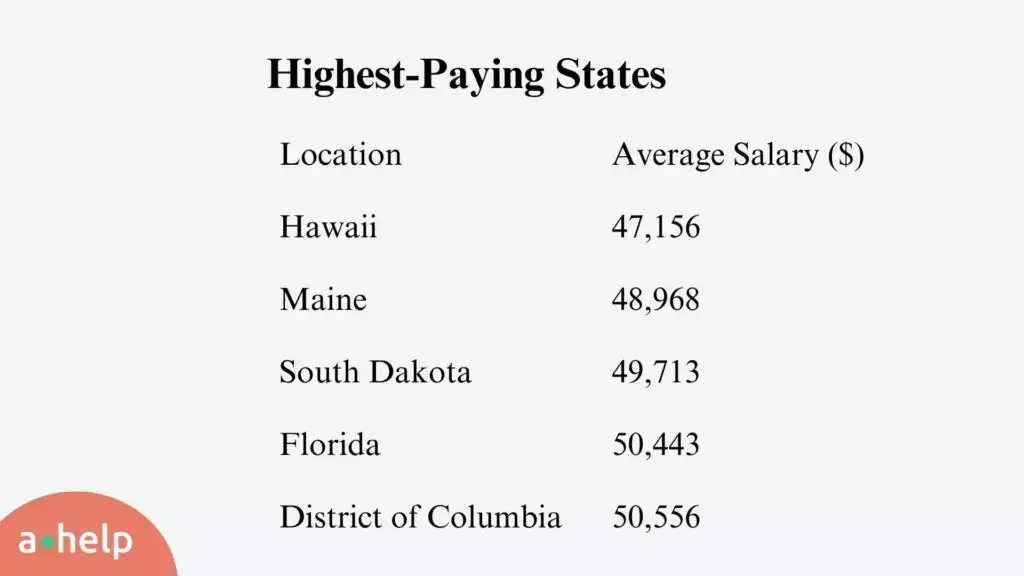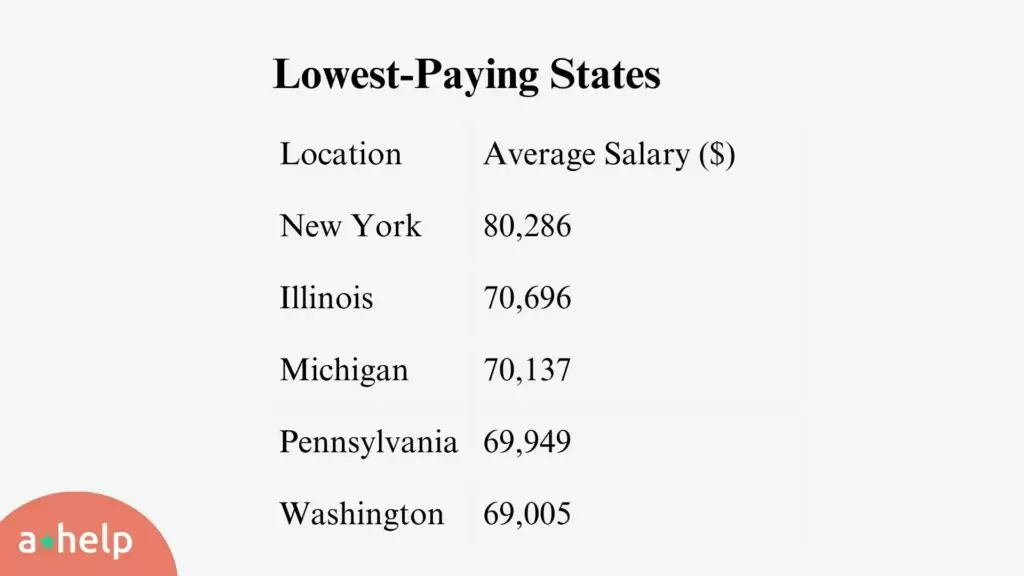When choosing a college high school graduates have a plethora of questions without straightforward answers. One of many is: which major to choose to be financially stable? Students are discussing the reality of career pay disparities.

✅ AI Essay Writer ✅ AI Detector ✅ Plagchecker ✅ Paraphraser
✅ Summarizer ✅ Citation Generator
Key Takeaways:
- U.S. teacher salaries are often low due to societal biases and lack of funding, with significant pay differences across states.
- High-income jobs can lead to stress and long hours, negating the benefits of a big paycheck.
- When choosing a major, students must weigh both financial stability and job satisfaction, as some fields offer long-term rewards despite lower initial pay.
Mahatma Gandhi once said: Be the change you want to see in the world. With these inspiring words, many graduates bid farewell to carefree days at school. Overbrimmed with excitement to start a new and adult life, they ponder: What is my passion?
Many understand that careers that they’d love to pursue, such as being a teacher, a marine biologist, an archeologist, or even an artist, are notoriously underpaid in the USA. When taking a look at the statistics, soon-to-be college students are questioning their future career path. One such student was candid about their mixed feelings in the online community asking what’s next for them if they are passionate about being a teacher.
The Financial Struggles of American Teachers
Teachers are often said to be the backbone of society, guiding the next generation toward a better future. Yet, despite their critical role, teachers in the United States are notoriously underpaid. Two bills currently in Congress aim to address this issue, but their fate is uncertain. The Pay Teachers Act and the American Teacher Act both propose a minimum salary of $60,000 for teachers, yet there’s a long road ahead for these pieces of legislation.

Salaries for teachers can vary greatly depending on location. While a teacher in New York may enjoy a relatively high average salary of around $80,000, those in Hawaii may make as little as $47,156. This geographic disparity is made worse when considering the cost of living, which is notoriously high in states like Hawaii.

Students in the online community also raised the question of money. As it turned down, many had different experiences:
“Teaching doesn’t pay great in the beginning but you do end up making a comfortable living for yourself. With tenure and continuing education (which your district will pay for at least half of in most cases), you end up making good money. Many teachers will make the leap into administration where you really get paid well. You also get a nice pension when you retire.”
“That is heavily dependent on the state. It may be true for some states, and if you are in, say, Mass, it’s definitely an option. But not somewhere like Arizona.”
“Exactly. North Carolina has no tuition reimbursement for further education (I moved here from a state that did and asked how much the state would reimburse per credit and got laughed at). There is also no longer a pay increase for getting additional degrees, so you can pay for your own master’s degree and still get paid the same as you did before.”
“Incredibly true. Depending on where you live, teaching is a “long game” profession. Good increases over the length of the career and top pay is often high tier for most professions. Also they typically have good benefits & pensions.”
Why Teachers Are Underpaid
Several factors contribute to why teachers often find themselves financially struggling. Many schools are underfunded, and education frequently falls low on the list of governmental budget priorities. The public perception that teaching isn’t a highly-skilled job also contributes to lower salaries. Teachers often have to invest in their own education and professional development, sometimes resulting in hefty student loans. Many educators teach in large classrooms with limited resources, and a significant chunk of school budgets often go toward administrative costs rather than salaries.
One seasoned teacher contributed to the online community:
“Teachers are underpaid because of limited government funding for schools, which is a multi faceted issue. Some regions have finally started to figure out that the solution to the teacher shortage is to recruit them with higher pay, and entice the current teachers to stay with higher pay, so you can get a decent paying job in education if you’re willing to relocate to a select few cities.”
There’s also a societal element at play. Teaching is a profession dominated by women, and societal gender biases often result in lower salaries in fields that are considered ‘women’s work.’ Moreover, teaching is often viewed as a vocation or a ‘calling,’ which is wrongly used as justification for lower pay.
- Lack of Funding: Many schools are underfunded, meaning there’s not enough money in the budget to give teachers the salaries they deserve.
- Low Priority in Budgets: Education often takes a backseat when it comes to government budgets. Areas like healthcare and defense tend to get more focus and funding.
- Societal Views: A prevalent societal view considers teaching not to be a highly-skilled profession, contributing to the undervaluing of educators.
- High Costs of Education: Teachers often have to pay for their own advanced degrees, leading to high student loan debts.
- Administrative Costs: A significant portion of educational budgets goes into administrative costs, leaving less room for teacher salaries.
- Gender Bias: With a workforce dominated by women, gender bias often plays a role in the lower salaries offered to teachers.
- Political Factors: Changes in government policies and budget cuts can affect teachers’ salaries, making their income more precarious.
Low salaries not only make life difficult for teachers but can also have a broader impact on the education system. Financial stress can lead to high turnover rates among teachers, which isn’t conducive to a stable learning environment for students. A focus on standardized testing as a measure of teacher performance further shifts the attention away from comprehensive education, affecting both teachers and students negatively.
What Can Be Done?
While the proposed legislation is a step in the right direction, solving the issue of teacher underpayment is complex and will require a multifaceted approach. This isn’t merely a financial issue; it’s a societal issue that goes to the heart of how we value education and those who provide it.
It’s clear that as a society, we need to invest more in our teachers. This means not just paying them a fair wage but also providing them with the resources and professional development opportunities they need to excel in their roles. A shift in public perception is needed to recognize and respect the skill and dedication it takes to be a teacher. With the future of our country in their hands, it’s an investment we can’t afford not to make.
Why Pursuing High-Income Jobs Doesn’t Always Lead to Happiness
While many people think that getting a high-income job will solve all their problems and make them happy, that’s not always the case. Sure, making a lot of money can be great. It can let you buy a nice home, go on fun vacations, and maybe even retire early. But it’s important to remember that money isn’t everything.
Let’s look at some reasons why chasing a high-paying job might not bring you the happiness you think it will. First, high-income jobs often come with high levels of stress. For example, doctors and lawyers make a lot of money, but they also work long hours, sometimes in intense situations. This can lead to burnout and health problems, which no amount of money can fix.
Second, when you’re focused on making money, you might not have time for the things that really matter, like spending time with your family and friends. Imagine missing your kid’s soccer games or not being able to go to family events because you’re always working. Time is something you can’t buy back, and missing out on these moments can leave you feeling empty.
Also, high-paying jobs often demand a lot of your time, meaning you may have to give up hobbies or activities that make you happy. Imagine you love painting, but your demanding job leaves you with no time or energy to paint. Slowly, you might start feeling like something’s missing in your life.
Another thing to consider is job security. Some high-paying jobs may not be stable. For instance, a person working in a high-paying tech job might find themselves out of work if their skills become outdated or the company decides to cut costs.
Lastly, making more money might lead to lifestyle inflation. This means that as you make more, you also start spending more, maybe on a bigger house or a fancier car. Before you know it, you’re stuck in a cycle where you need to keep making a high income just to maintain your lifestyle.
So, before you chase after a high-income job thinking it will make you happy, think about what really matters to you. Money can buy comfort and convenience, but it can’t buy happiness. Sometimes a job that pays less but offers a good work-life balance and job satisfaction might be the better choice for a happy life.
Follow us on Reddit for more insights and updates.





Comments (0)
Welcome to A*Help comments!
We’re all about debate and discussion at A*Help.
We value the diverse opinions of users, so you may find points of view that you don’t agree with. And that’s cool. However, there are certain things we’re not OK with: attempts to manipulate our data in any way, for example, or the posting of discriminative, offensive, hateful, or disparaging material.